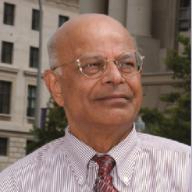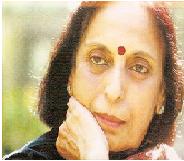Natwar Gandhi
India at 75: No longer the heaven of freedom where the mind would be without fear
 When Jawaharlal Nehru, India’s first Prime Minister, gave his famous “Tryst with Destiny” speech on India’s Independence Day, August 15, 1947, he said, “at the stroke of the midnight hour, when the world sleeps, India will awake to life and freedom.” Though he was aware of all the pains that were endured to secure India’s freedom, he was hopeful that “the past is over, and it is the future that beckons to us now.” Since that fateful day, India has changed remarkably. From a timid, diffident, and hesitant nation, it has morphed into an assertive, even aggressive, behemoth. Indian corporations stride triumphantly abroad and smart Indians abroad dazzle their host communities. Despite all this, the country has always lagged behind China in economic progress, but we had the trump card—a multi-party democracy and freedom of press and individual liberty, particularly the freedom to dissent and, above all, the freedom from fear. No more. Presently the freedom that Nehru had bequeathed is squandered. Sadly, India is no longer the country that the Nobel laureate poet Rabindranath Tagore had once envisioned as “the heaven of freedom…. where the mind is without fear.”
When Jawaharlal Nehru, India’s first Prime Minister, gave his famous “Tryst with Destiny” speech on India’s Independence Day, August 15, 1947, he said, “at the stroke of the midnight hour, when the world sleeps, India will awake to life and freedom.” Though he was aware of all the pains that were endured to secure India’s freedom, he was hopeful that “the past is over, and it is the future that beckons to us now.” Since that fateful day, India has changed remarkably. From a timid, diffident, and hesitant nation, it has morphed into an assertive, even aggressive, behemoth. Indian corporations stride triumphantly abroad and smart Indians abroad dazzle their host communities. Despite all this, the country has always lagged behind China in economic progress, but we had the trump card—a multi-party democracy and freedom of press and individual liberty, particularly the freedom to dissent and, above all, the freedom from fear. No more. Presently the freedom that Nehru had bequeathed is squandered. Sadly, India is no longer the country that the Nobel laureate poet Rabindranath Tagore had once envisioned as “the heaven of freedom…. where the mind is without fear.”
*
Natwar Gandhi was born in Savar Kundla [Gujarat] and lives in Washington and Philadelphia. He was the Chief Financial Officer of Washington, DC, 2000-13. He is the author of three books of poetry and an autobiography in Gujarati. He is also the author of Still the Promised Land.
°°°°°°°°°
Panna Naik
India at 75: A Climate of Fear Pervades in Literary India
 Presently in India, a climate of fear pervades everywhere, even in poetry. As an American poet writing in Gujarati, Mahatma Gandhi’s language, I am deeply distressed and saddened. On June 25, 1975 Prime Minister Indira Gandhi, fearful of political reversal, threw away her legendary father Jawaharlal Nehru’s legacy—popular democracy and individual freedom—by a stroke of the pen. She then established the Emergency. At the time, one of the strongest voices of dissent against her fiat was that of a great Gujarati poet Umashankar Joshi. As a nominated member of Rajya Sabha, India’s Upper House of Parliament, Joshi thundered that this untoward action would destroy the very truth of life as envisioned in the Mahabharata, an ancient Sanskrit epic. Even during that 21-month long Emergency when press freedom and individual liberty were suppressed, poets like Joshi and other dissenters took great risks to speak freely. Today, it is different. Today, my poet friends in India tell me they are cautious in what they write and say. When I hear this, a part of my being as a poet dies.
Presently in India, a climate of fear pervades everywhere, even in poetry. As an American poet writing in Gujarati, Mahatma Gandhi’s language, I am deeply distressed and saddened. On June 25, 1975 Prime Minister Indira Gandhi, fearful of political reversal, threw away her legendary father Jawaharlal Nehru’s legacy—popular democracy and individual freedom—by a stroke of the pen. She then established the Emergency. At the time, one of the strongest voices of dissent against her fiat was that of a great Gujarati poet Umashankar Joshi. As a nominated member of Rajya Sabha, India’s Upper House of Parliament, Joshi thundered that this untoward action would destroy the very truth of life as envisioned in the Mahabharata, an ancient Sanskrit epic. Even during that 21-month long Emergency when press freedom and individual liberty were suppressed, poets like Joshi and other dissenters took great risks to speak freely. Today, it is different. Today, my poet friends in India tell me they are cautious in what they write and say. When I hear this, a part of my being as a poet dies.
Panna Naik was born in Bombay and lives in Philadelphia. She has published 11 books of poetry and one collection of short stories in Gujarati. She has also published a book of poems in English, The Astrologer’s Sparrow.
![]()

